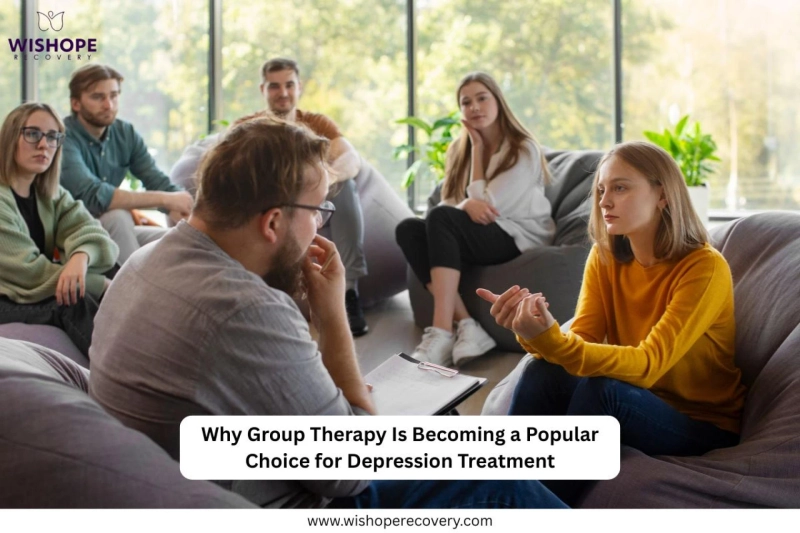Commonly found as one of the most widespread mental health concerns worldwide, depression affects millions yearly. While more traditional treatment methods remain vital, these treatments would include, in some cases, medication and individual counseling; herein lies growing participation in group therapy as a treatment for depression. At WisHope Recovery, we believe healing does not have to be done alone, considering group therapy holds such an immense opportunity as an evidence-based practice in mental health recovery.

1:- The bond of shared experience
One of the most difficult aspects of depression is the crushing loneliness one is subjected to. Group therapy invites shared experiences and opens up space to share one's experience and freely listen to others-it thereby fosters a sense of co-existence. The commonality of experience often allows individuals to subside feelings of both shame and stigma, but instead introduces acceptance and hope.
2:- A Network of Support for Growth
Participants in group therapy receive both the professional support of a therapist and peer support from fellow going through similar experiences. Such a shared experience builds a community that fosters accountability, motivation, and resilience. Observing other members make use of coping skills can encourage participants to try those same skills for themselves.
3:- Learning from Other Perspectives
Everybody experiences depression in their own way, which means that in the group setting, group members are able to understand leaning and coping strategies through those different perspectives. These diverse perspectives spark new ideas for ways to conceptualize managing depression that members may not have learned in individual therapy.

4:- Affordable, Accessible Care
Group sessions for mental health is also being seen as an increasingly accessible treatment. Often more affordable than individual sessions, group therapy can also be very effective at providing the necessary outcome. This treatment is an excellent option for those wanting to access consistently structured care without the financial implications.
5:- Supported by Research and Evidence
Research consistently shows group therapy is as effective as individual therapy for treating depression. Therapists using structured discussions and social support in the treatment were effective at delivering improvements in mood, emotional awareness, and mental well-being.

Group Therapy at WisHope Recovery
Group therapy is part of a holistic recovery program at WisHope Recovery. Our groups are led by Licensed Therapist professionals to provide consistency during sharing and support to others. Combined with individual therapy counseling, medication, or other treatment methods such as yoga or art therapy, group therapy can assist you with recovery.
Final Thoughts
Group therapy is much more than just "talking in a circle;" it is an important therapeutic intervention comprising professional facilitation and peer support. Other reasons for the growing popularity of group therapy in the treatment of depression include the reduction of isolation, development of a support network, and provision of practical coping skills.
At WisHope Recovery, we want to help you find hope and healing through the approaches that actually help people feel better. If you or someone you love is experiencing depression, remember that you do not have to go through it alone. Recovery is possible together.



